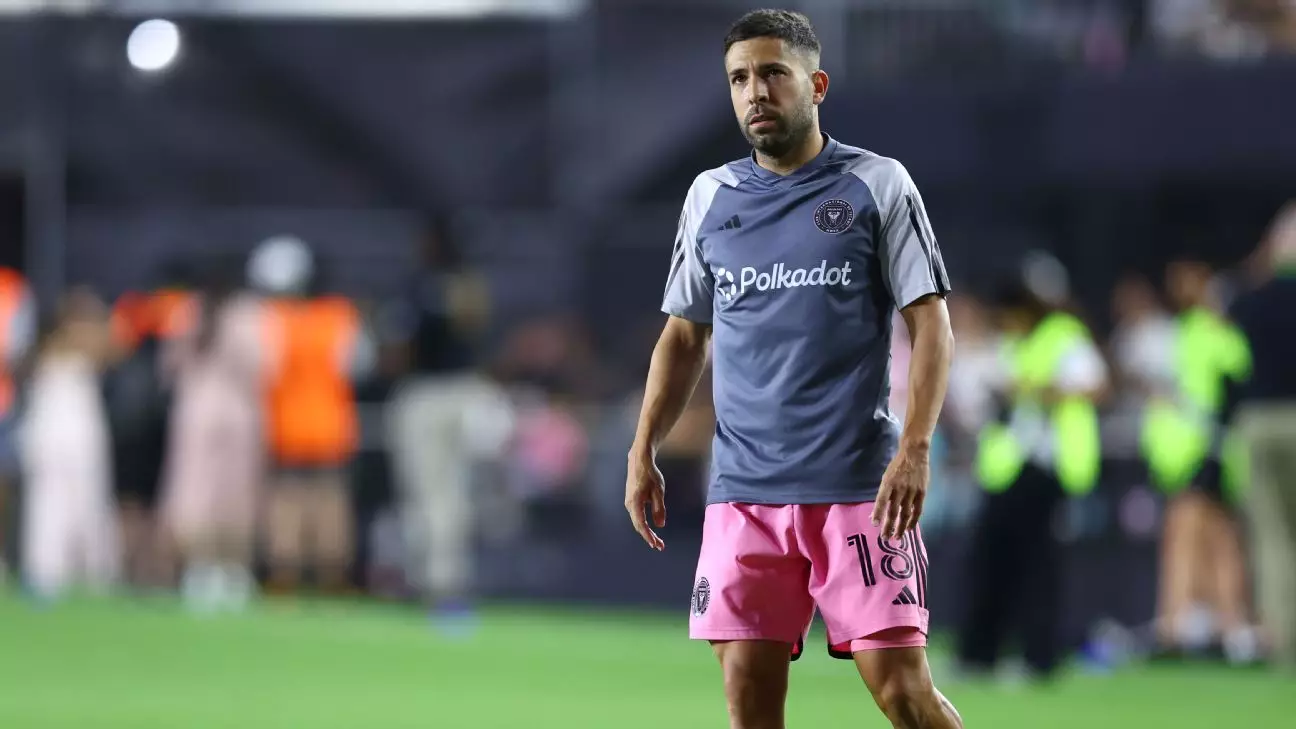The elimination of Inter Miami from the MLS playoffs has opened the floor to a significant discussion surrounding the fairness of the postseason structure, primarily propelled by comments from veteran defender Jordi Alba. After a heart-wrenching 3-2 loss to Atlanta United in the decisive third match of their best-of-three series, Alba shared his candid thoughts on a system he considers fundamentally unfair. This article seeks to unpack Alba’s criticism while analyzing how the current playoff format may impact teams and their strategic approaches moving forward.
The Elimination That Sparked Debate
Alba’s comments emerged in the aftermath of Inter Miami’s latest playoff exit, marking a bittersweet conclusion to a campaign in which they showcased moments of brilliance but ultimately fell short of their aspirations for silverware. This season marked Alba’s first foray into the MLS postseason following Miami’s previous campaign, which ended in disappointment as they finished 14th in the Eastern Conference. By addressing the system head-on, Alba shines a light on a format that many players and fans have begun to critique—suggesting that it doesn’t reward teams appropriately based on their season performances.
The MLS postseason format consists of a best-of-three series in the early rounds, followed by a knockout stage for subsequent rounds. While this approach aims to provide a more extended narrative to the playoffs, it may inadvertently undermine the achievements of teams that have done well throughout the regular season. In Alba’s perspective, this method does not do justice to the efforts displayed through the year.
“It was a good season, but what we wanted was to win this more,” Alba stated following the exit. His frustration reflects a common sentiment among athletes who spend months vying for a robust finish only to see their dreams dashed in a sudden-death scenario that doesn’t necessarily reflect their overall capability as a unit. Moreover, Alba emphasized a desire for a more traditional playoff structure, suggesting that champions of the respective conferences should square off in a grand final, echoing long-standing practices in other professional sports.
In a league that continues to evolve, the playoff system significantly shapes teams’ strategies both in regular season and postseason contexts. The success or failure of a club can hinge upon game planning for either a series or elimination. Such factors can create complications that might not necessarily be representative of a team’s growth or cohesive play. By advocating for a more streamlined playoff structure, Alba not only aligns himself with a player-centric approach but also articulates a call for greater accountability within the framework of the league.
Despite Inter Miami’s successful run in the regular season, clinching the Supporters’ Shield and breaking league records for points, head coach Gerardo Martino took a rather tempered view of their overall performance. He refrained from designating the season as a success, arguing that advancements can only truly be measured through tangible outcomes. Martino’s stance emphasizes a vital point—success in football is often determined not only by milestones attained but also by the true capacity to contend when it matters most.
As Inter Miami heads into the offseason, the weight of unmet expectations looms large. The focus shifts from assessing tactical algorithms to strategizing for player acquisitions and enhancements for the subsequent season. Time will tell if their reflection yields a stronger, more resilient team capable of overcoming the unique challenges posed by the league’s playoff format.
Jordi Alba’s critique of the MLS postseason format encapsulates a growing dissatisfaction that may resonate with numerous players navigating similar circumstances. As the league continues to solidify its identity within North American sports, adapting the postseason structure to accommodate fairness and equitable competition could be instrumental moving forward. Simultaneously, clubs must learn from their exits, striving to improve team dynamics both on and off the pitch. The intersection of personal disappointment and systemic critique lays bare essential considerations for the future of the MLS, promising further debates and discussions in the seasons to come.


Leave a Reply